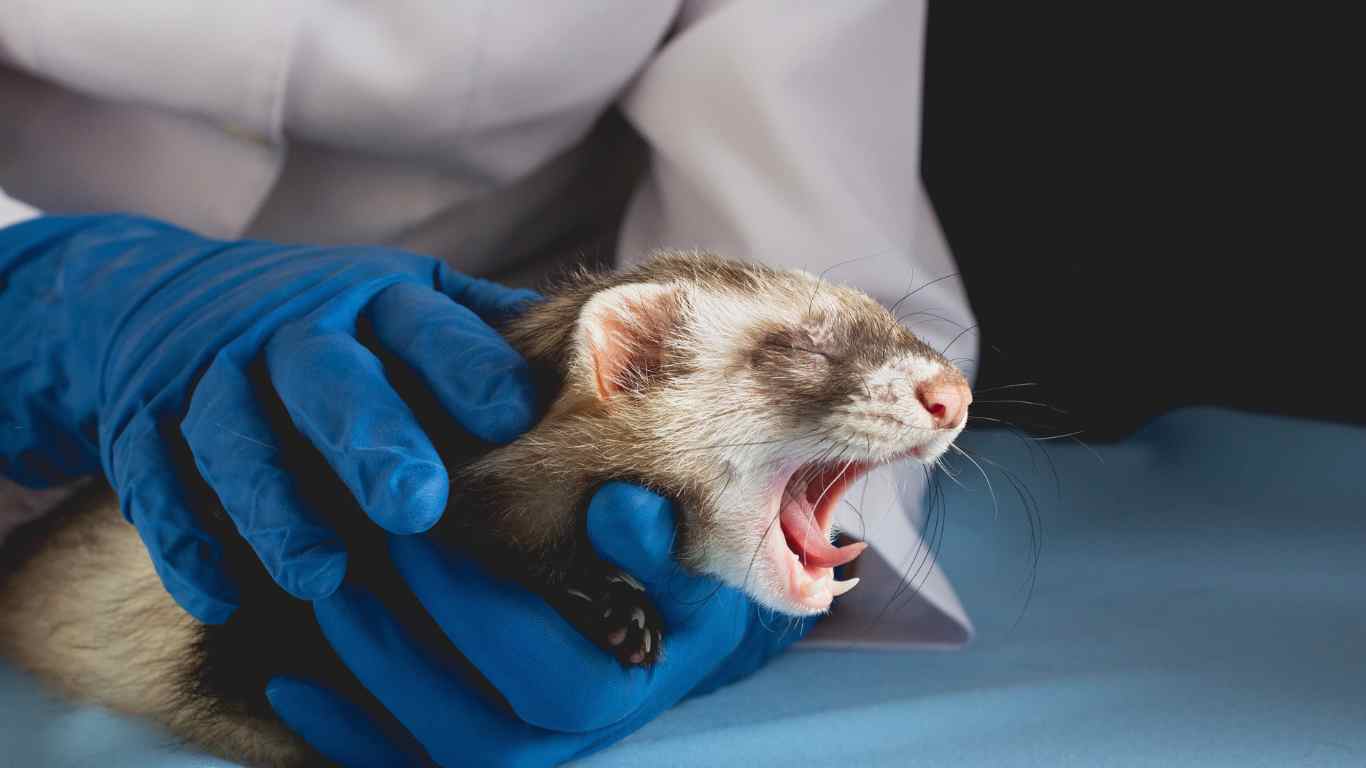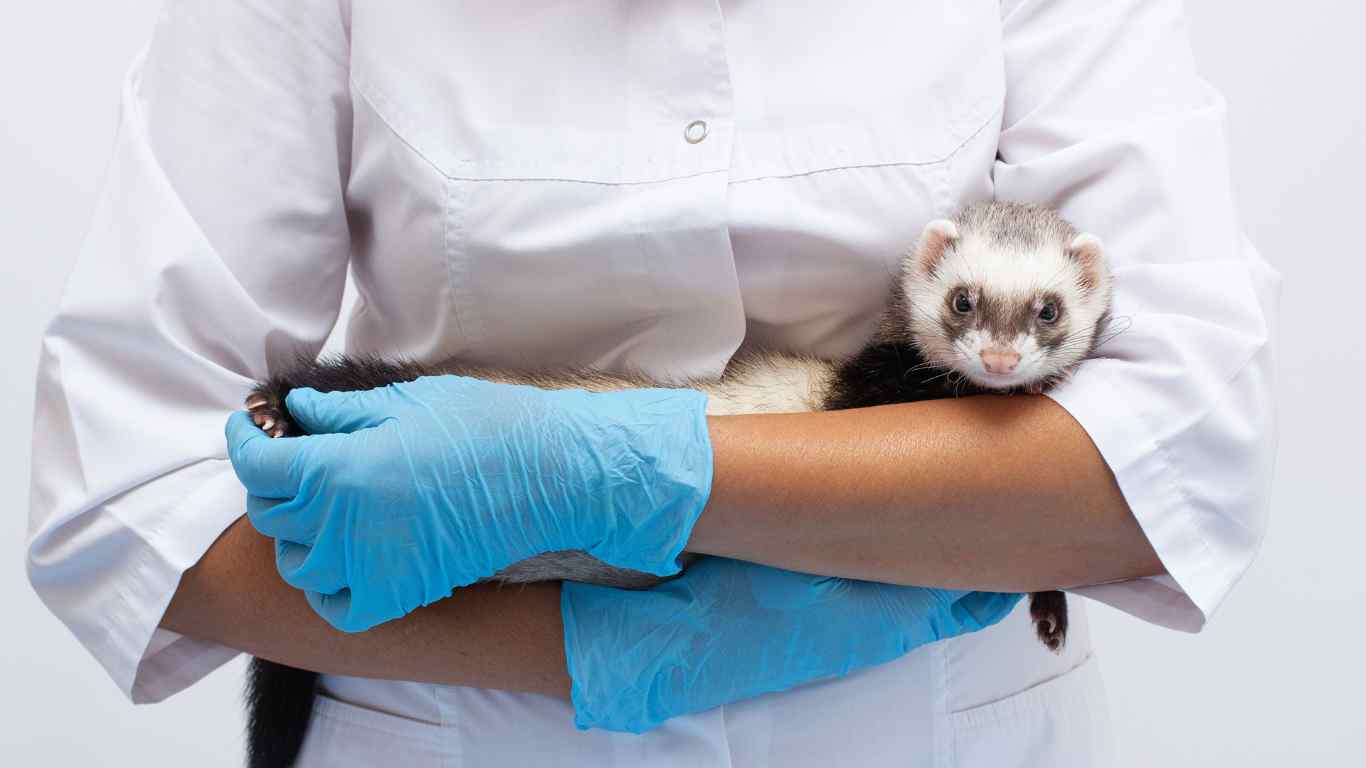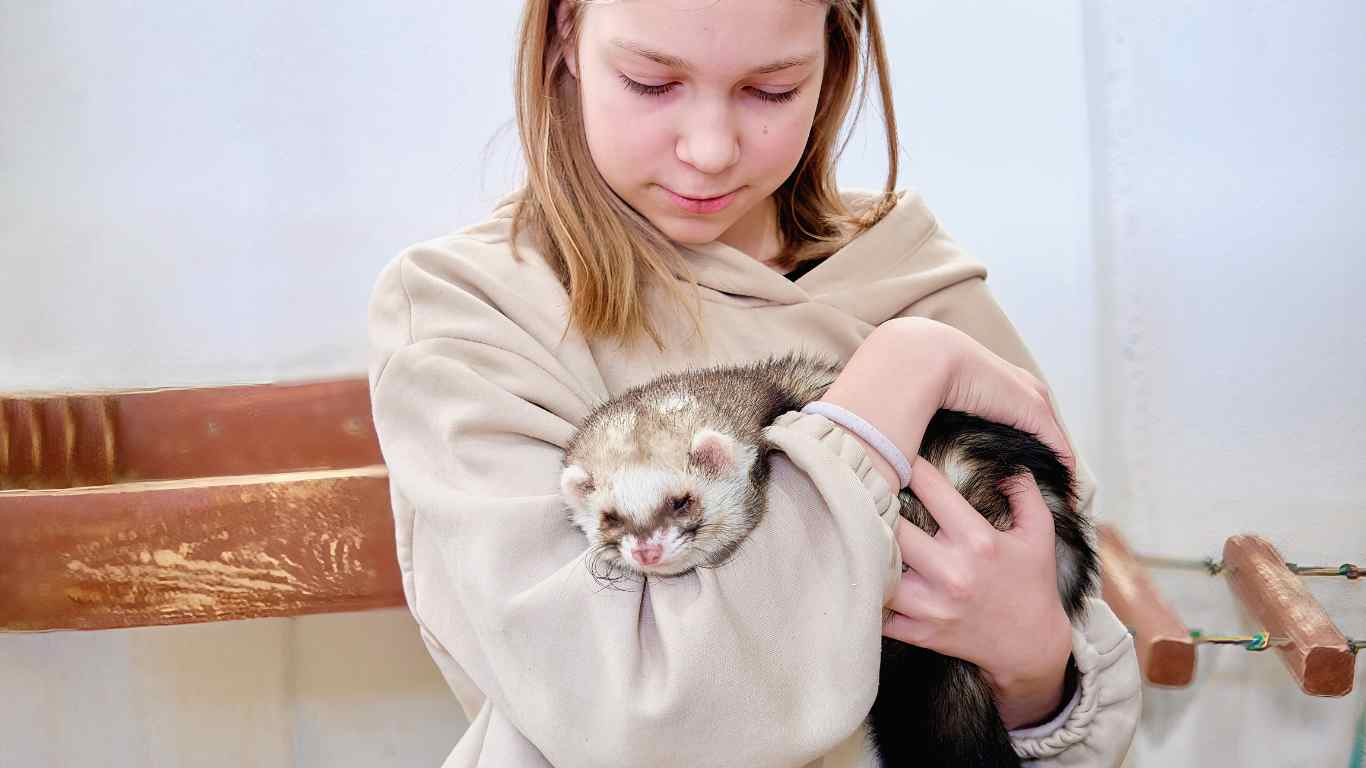How Long Do Ferrets Live? A Guide to Ferret Life Spans
Ferrets at home can live way longer than their wild cousins. Wild ferrets may only make it 1 to 3 years, but those at home can enjoy 4 to 6 years. This is all thanks to better care and nutrition. These playful pets love exploring and squeezing into tight spots. They need a lot of care to live a healthy life.
It’s important to know how long ferrets usually live and how to make their lives better. This guide will look at what affects their life span and how to care for them. If you’re ready, let’s learn how to keep your furry friend both happy and healthy.
How Long Do Ferrets Live? Core Insights:
Introduction to Ferret Life Spans
Ferrets have fascinated us for centuries, moving from wild to beloved house pets. They were first domesticated from the European Polecat. This history makes them require special care today. By knowing about ferret lifespans, you understand how to keep them happy and healthy.
History of Domesticated Ferrets
Ferrets have been with humans for over 2,500 years, first used to hunt rodents. Their slim bodies made them great at hunting rabbits in tight spaces. Now, they are cherished pets who live longer thanks to good environments and vet care. This changes how they age and their lifespan.
Importance of Understanding Ferret Lifespan
It’s key to know how long ferrets live, especially for their owners. Knowing the differences between wild and home ferrets helps us care for them right. Wild ferrets live 1-3 years due to tough life and no medical help. But, pet ferrets can live 4-6 years, or even 10 with good care. This depends on things like their genes, diet, vet visits, and how they live.
A happy ferret needs more than just food and a home. They must have regular vet checks, shots, a diet high in protein, and things to do. Learning about how ferrets age and their needs lets you improve their life quality and length.
Average Lifespan of Ferrets
Knowing how long ferrets live is key in caring for these playful pets. If you’re new to ferrets or already have one, it’s crucial to understand their lifespan differences. It matters whether they are domesticated or wild.
Domesticated Ferrets vs. Wild Ferrets
Domestic ferrets live about 4-6 years, thanks to better care and safe homes. Their longer lives come from regular vet visits, proper shelter, and a diet rich in protein but low in carbs. On the other hand, wild ferrets live shorter lives, around 1-3 years. They don’t get the same level of care. Knowing their lifespans helps us have the right expectations and highlights the need for good care.
| Lifestyle | Average Lifespan |
|---|---|
| Domesticated Ferrets | 4-6 Years |
| Wild Ferrets | 1-3 Years |

Record-Breaking Ferret Age
The oldest recorded ferret lived to be 14 years old. This shows just how much proper care can extend their lives. A top-notch diet, frequent vet checks, a stimulating environment, and good genes are key. Learning about these age records can motivate us to give our ferrets the best care, aiming for a long, happy life.
Factors Influencing Ferret Longevity
It’s key to know what affects how long your ferret lives. Factors like genetics, how well you care for them, and where they live matter a lot. Let’s look into what shapes a ferret’s life span.
Genetics and Breeding
Where a ferret comes from can impact its life span. Ferrets from the U.K. usually live a bit longer than those in the U.S. This is because they might be less likely to get sick. Getting a ferret from a breeder can also help it live longer.
Many pet store ferrets are fixed very young, which might not be good for their health. Waiting to do this until they are about a year old is better for them.

Quality of Care
Looking after your ferret well can make it live longer. They need a balanced diet and regular vet visits. You should also keep them hydrated. Doing these things can help them live up to 9 years or even more.
Environmental Conditions
Ferrets need a fun and spacious place to live. They like to play and move around a lot. Also, make sure they always have clean water to avoid dehydration. This helps them stay healthy and could make them live longer.
| Country | Life Expectancy (years) | Factors Influencing Longevity |
|---|---|---|
| U.S. | 5-9 | Genetics, early spaying/neutering, quality of care |
| U.K. | 6-11 | Genetics, diverse gene pool, breeding practices |
Knowing these tips can help your ferret have a long, happy life. Just add these secrets to your care routine.
Common Health Issues in Ferrets
Understanding ferrets’ health issues is key to keeping them well. They can develop several conditions that affect their life and happiness. Regular vet visits and watching for odd signs help keep your ferret healthy.

Adrenal Disease
Adrenal Gland Disease is a top health issue in ferrets. Look out for hair loss, scratching, swelling in females, and aggression. Seeing a vet early can improve your ferret’s health greatly.
Lymphoma and Other Cancers
Lymphoma is the most common cancer in ferrets. Signs include poor appetite, weight loss, and difficulty breathing. Early diagnosis and treatment are key here.
Gastrointestinal Issues
Ferrets face dangers from GI obstructions, like swallowing small objects. Symptoms include tiredness, vomiting, and no appetite. Keep their space safe from small ingestible items.
| accuracy of the content, please use the following guidelines: | Symptoms | Prevention/Treatment |
|---|---|---|
| Adrenal Disease | Hair loss, excessive itchiness, vulvar swelling, prostatitis, anemia, aggression | Early detection and veterinary care |
| Lymphoma | Poor appetite, weight loss, vomiting, diarrhea, visible masses, abdominal swelling, difficulty breathing, coughing, hind limb weakness | Regular check-ups and immediate medical intervention |
| Gastrointestinal Issues | Lethargy, lack of appetite, vomiting, diarrhea | Safe environment and prompt veterinary treatment |
Address these health concerns early and go for regular vet check-ups to help your ferret stay healthy. A caring, stress-free home is crucial for their well-being and long life.

How Long Do Ferrets Live in Captivity?
Ferrets live longer when kept as pets, usually about 4 to 6 years. With great care, some might reach 10 years or more. However, most live between 5 and 7 years.
Wild ferrets have a shorter life, around 1–3 years, because they don’t get medical care or good food. But, pet ferrets see vets regularly, eat well, and live in safe places.
A proper and fun living space is key to a long life for ferrets. They need a diet high in protein and fun places to explore. They are curious and love to play, so their homes should help them do that.
Going to the vet often is also very important. Vets help keep ferrets healthy by catching diseases early. This way, ferrets can live a long and happy life.
In the table below, we’ve outlined some vital aspects that influence ferret years of age and captive ferret longevity:
| Key Factors | Details |
|---|---|
| Veterinary Care | Regular health checks, vaccinations, and preventative measures. |
| Proper Diet | High-protein, low-carb, ferret-specific formulated diets. |
| Environmental Enrichment | Safe, stimulating spaces for exercise and play. |
| Genetics | Greater genetic diversity and less inbreeding lead to healthier ferrets. |
| Housing | Secure environments with proper litter training and supervision. |
Taking care of these needs is important for anyone wanting their ferret to live a long and joyful life.
Nutrition and Diet for a Healthy Ferret
A balanced diet is vital for your ferret’s health and lifespan. As strict carnivores, their specific dietary needs must be met for their wellbeing.

Essential Nutrients
High-quality animal proteins and fats are crucial for ferret nutrition. Proteins support muscle maintenance. Fats provide energy, and taurine supports heart and eye health. Foods made for ferrets or high-grade kitten food can fulfill these needs.
Common Dietary Mistakes
Some ferret owners feed them the wrong food, leading to health issues. It’s best to avoid vegetable proteins and grains. Ferrets cannot process these well. Stick to meat-based proteins to avoid digestive problems and other health issues. Missing out on ferrets’ essential nutrients can cause serious conditions like bladder stones.
Whole Prey Foods vs. Commercial Diets
You can choose between whole prey foods and commercial diets for your ferret. Whole prey foods, like raw meat and bones, provide nutrition close to their natural diet. Commercial diets, though convenient, are made to meet ferret dietary needs. Whichever option you choose, make sure it’s balanced and complete for your ferret’s health.
| Diet Type | Pros | Cons |
|---|---|---|
| Whole Prey Foods |
|
|
| Commercial Diets |
|
|

Importance of Regular Veterinary Care
Taking your ferret for regular vet visits is key to a long, healthy life. They need a vet who knows their special needs. Routine exams, on-time vaccines, and fighting common diseases are all important.
Annual Health Exams
It’s important to have your ferret checked by a vet once a year. These checks can spot health issues early for quick treatment. If your ferret is older than five, they need a check-up every six months. Older ferrets get sick more easily.
Necessary Vaccinations
Vaccines are crucial for keeping your ferret safe from harmful diseases. They must get shots for rabies and canine distemper. Rabies shots are done every year. Distemper shots start with one and then need boosters. Talk to your vet for a vaccine plan that fits your ferret.

Preventative Measures Against Common Diseases
To keep diseases away, ferrets need regular care. This includes monthly treatments for fleas and ear mites, plus cleaning their ears and cutting their nails. Fixing your ferret early stops serious health issues and bad behavior.
By visiting the vet often, getting shots, and taking preventive steps, your ferret will live a happier, longer life.
Tips for Keeping Your Ferret Happy and Healthy
Keeping your ferret happy and healthy is easy with the right tips. They need a fun place to live, good food, and regular check-ups at the vet.
Ferrets love to sleep most of the day, but when they’re up, they’re full of energy. Your ferret’s home should be big enough for them to play in, at least 18 x 18 x 30 inches. It’s important for ferrets to have time outside their cage every day. This helps them stay fit and happy.
Give them toys and play areas to keep their mind and body active. Ferrets need fresh water always and a diet rich in fats and proteins. This diet will keep them in top shape.
- Provide toys and play areas to stimulate their minds and bodies, as this is crucial to keeping ferrets healthy.
- Ensure fresh water is readily available at all times, and maintain a diet high in fat and rich in meat-based protein to meet their nutritional needs.

Bath your ferret only once or twice a month to keep their skin healthy. Cleaning their ears every two weeks and trimming their nails regularly will prevent health issues. These practices keep your ferret looking and feeling great.
It’s important to take your ferret to the vet regularly. At first, they should go once a year. After they turn five, take them every six months. It’s also key to vaccinate them against rabies and distemper. Regular visits to the vet can catch illnesses early.
| Need | Frequency | Reason |
|---|---|---|
| Bathing | 1-2 times a month | Maintains coat health |
| Ear Cleaning | Every 2 weeks to a month | Prevents infections |
| Nail Trimming | Every couple of weeks | Prevents injuries |
| Veterinary Check-Ups | Annually (until age 5), then every 6 months | Ensures overall health |
| Vaccinations | As recommended by a vet | Prevents diseases |
Follow these care tips and ensure proactive health measures for your ferret. A comfortable home, well-balanced diet, and regular vet visits will make your ferret’s life great. It’s all about creating a loving environment where your pet can feel their best.
SIGN UP FOR NEWSLETTER
Sign up to receive email updates on new product announcements, gift ideas, special promotions, sales and more.
Final Remarks
Ferret lifespan isn’t just about their biology. It’s also about caring for their health and happiness. An estimated eight million ferrets are pets in the U.S., showing they’re much loved. These furry friends usually live to be about eight years old. Yet, some reach up to 12 years with good care. This guide gave you the basics. From genetics to food and health care, all aim to help you enjoy many years with your ferrets.
Genetics greatly affect how long ferrets live. Ferrets from good family lines tend to live longer. But, their diet and healthcare also play a big role in their lifespan. Since ferrets need meat-based diets, high-quality animal proteins and fats are vital. Regular vet visits and a balanced diet help keep them healthy. Staying on top of their health care, like getting shots and fighting off parasites, is also key.
Keeping your ferret healthy also means giving them a good place to live and lots of exercise. They need both to be happy and live longer. Ferrets should play outside their cages for four hours daily. This keeps them fit and avoids obesity and other health issues. With the right care and attention, your ferret will live a happy, adventurous life with you.
FAQ
How long do ferrets live on average?
A: Domesticated ferrets live about 4 to 6 years. With great care, they can reach 10 years or more. Wild ferrets live shorter, around 1 to 3 years, because of tougher conditions.
What factors influence a ferret’s lifespan?
Many things affect how long ferrets live. These include their genes, the care they get, their environment, and what they eat. To help them live longer, provide good care, a safe space, and the right food.
How do genetics affect a ferret’s lifespan?
Genetics are very important for a ferret’s health and lifespan. Avoiding inbreeding is key. It helps prevent health problems. Choose ferrets with a varied genetic background for a better chance at a healthy life.
What are common health concerns in ferrets?
Ferrets often face adrenal disease, lymphoma, and tummy issues. It’s crucial to visit the vet regularly. Catching these issues early is the best way to keep them healthy.
How can I keep my ferret healthy and increase its lifespan?
Feed your ferret animal proteins for a healthy diet. Take them to the vet often. Give them a fun and safe place to live. Keep them clean and well-groomed. These steps can help them live longer.
What should I feed my ferret to ensure its good health?
Since ferrets need a lot of animal proteins, give them quality ferret food or kitten food. Stay away from vegetable proteins. They can harm your ferret’s health.
How often should I take my ferret to the vet?
Your ferret needs a check-up once or twice a year. These visits help find and prevent diseases early. That way, your ferret stays happy and healthy.
What vaccinations does my ferret need?
Your ferret needs shots against rabies and canine distemper. These shots protect against deadly diseases. They are essential for a long, healthy life.
What environmental conditions are best for a ferret?
Ferrets love having lots of space to play and explore. They need an environment that’s safe and full of stimulation. Make your home safe to avoid stress and injuries. A loving home is also crucial.
🎧 Never Miss a Drop
Exclusive product releases, hip-hop deep dives, and member-only discounts. Straight to your inbox.
Free forever. No spam. Unsubscribe anytime.

Get the Culture, Delivered
Deep dives into hip-hop history, exclusive product drops, and discounts sent straight to your inbox. No spam, just culture.
Join 2,000+ hip-hop heads already in the loop. Unsubscribe anytime.








